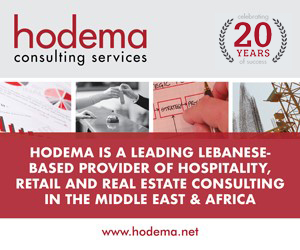
Digital transformation is undoubtedly a powerful catalyst propelling the industry’s evolution. As we continue to advance into the digital era, hospitality businesses are harnessing automation for routine tasks, AI, data analytics and more, to optimize customer experiences, reorient their teams toward meaningful guest communication and service delivery, and streamline operations. For instance, technologies like the internet of things (IoT), machine learning and predictive analytics have become indispensable for maintaining and managing physical assets. Through these tools, businesses can proactively oversee their assets, identify issues in advance and prevent operational downtime, thus elevating guest satisfaction and business productivity.
Sustainability
Sustainability stands as another cornerstone of the new norms in hospitality asset management. The intensifying climate crisis and growing consumer awareness of environmental impacts demand that the hospitality sector reduce its carbon footprint. Consequently, asset managers are concentrating on enhancing energy efficiency, minimizing waste, and investing in sustainable infrastructure, as well as sourcing quality products locally, directly contributing to the reduction of carbon dioxide emissions associated with the supply chain. Efforts range from simple changes, like using energy-efficient appliances, to more substantial initiatives, such as installing solar panels and recycling systems.
Flexibility and adaptability
Flexibility and adaptability have become integral to navigating the fluctuating hospitality landscape, a lesson reinforced by the Covid-19 pandemic. Many hospitality businesses diversified their operations to ensure viability, repurposing underutilized spaces for co-working or implementing strategies for remote conferencing and events. Fundamentally, hotels have learned to realign their assets in line with evolving market demands, a trend likely to persist, including cross-training team members to optimize operations while providing more avenues for career growth and personal development.
Prioritizing health and safety
Prioritizing health and safety is another trend that emerged in the aftermath of the pandemic. Elevated hygiene standards have become a fundamental expectation, prompting businesses to invest in technologies such as contactless check-in and keyless room entry to mitigate infection risks. It’s no longer sufficient for assets to be functional and aesthetically pleasing; they must now also demonstrably ensure safety.
Effective revenue management
Effective revenue management remains crucial in the context of these new norms. In an unpredictable market, revenue management tools have become pivotal for hoteliers, aiding them in making informed decisions about pricing and distribution. These tools enable businesses to optimize their revenues by strategically adjusting prices based on demand patterns, competition and other influential factors.
Data dominance
Lastly, the ascendancy of data in decision-making is reshaping the landscape of hospitality asset management. With the proliferation of data and advanced analytics tools, asset management is progressively becoming more data-driven. Asset managers are leveraging data to make informed decisions about their assets, whether related to maintenance schedules, investments, or guest preferences. This approach can also extend to facilitating asset evolution or reconfiguration, optimizing returns.
In conclusion, the hospitality industry remains in a constant state of change, and asset managers must be poised for the future. By comprehending these new norms and trends, asset managers can strategically position themselves for success.
Furthermore, beyond the aforementioned trends, a variety of other factors are poised to influence hospitality asset management in the upcoming years. These encompass the growing popularity of experiential travel, the expansion of the millennial market and the growth of artificial intelligence.

Bastien Blanc,
hotelier and co-founder of TroKadero Management













